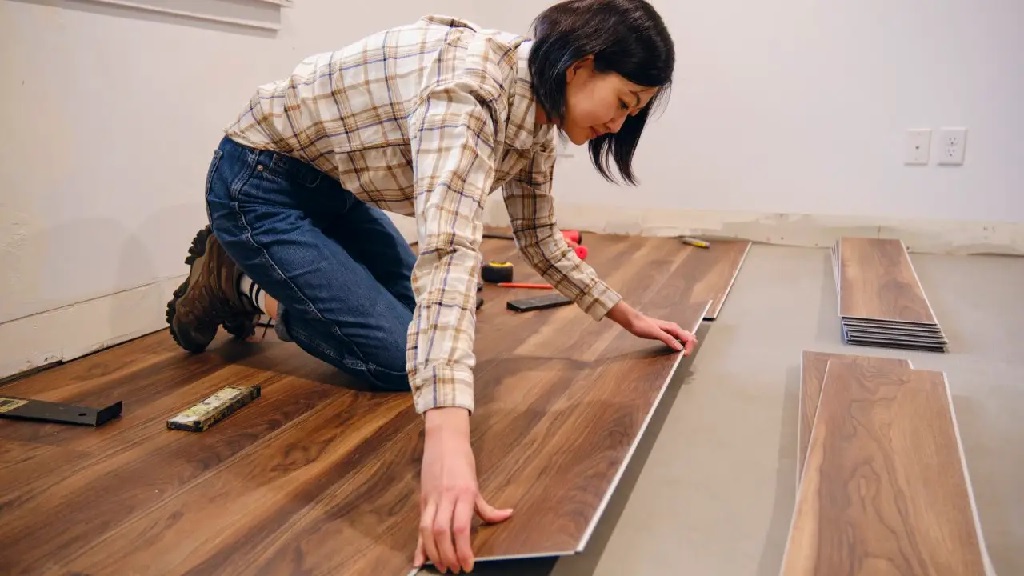When it comes to flooring projects, whether residential or commercial, having the right equipment is essential for ensuring a smooth and successful outcome. However, purchasing flooring equipment outright is only sometimes practical or cost-effective, especially for one-time projects or short-term needs.
This is where Flooring Equipment Hire becomes a valuable solution. But how do you choose the right hire for your specific needs? In this comprehensive guide, we’ll walk you through the key factors to consider, helping you make an informed decision that meets your project requirements.
Understanding Your Flooring Project
Before diving into the specifics of equipment hire, it’s crucial to understand your flooring project clearly. Different types of flooring installations and renovations require various tools and machinery. Here are a few questions to consider:
- What type of flooring are you working with? (e.g., hardwood, laminate, tile, carpet, etc.)
- What is the scale of your project? (e.g., a single room, an entire house, or a commercial space)
- What is the timeline for completion? (e.g., a weekend project or a longer-term renovation)
- Do you have any specific challenges? (e.g., uneven subfloor, moisture issues, or complex patterns)
Answering these questions will help you narrow down the type of equipment you need, which will simplify the hiring process.
Types of Flooring Equipment Available for Hire
Flooring projects can involve various tasks, from surface preparation to installation and finishing. Here are some of the most common types of flooring equipment you may need:
Floor Sanders
Floor sanders are essential for refurbishing wooden floors. They remove the top layer of wood, stains, or finishes to reveal fresh, smooth wood beneath. There are different types of sanders available for hire:
- Drum Sanders: Ideal for large, open areas. They are powerful and can remove a significant amount of material quickly.
- Orbital Sanders: Best for lighter sanding and finishing work. They are easier to control and less aggressive than drum sanders.
- Edge Sanders: Designed to reach corners and edges where larger sanders cannot access.
Floor Strippers
Floor strippers remove old flooring materials like carpet, vinyl, or tile. These machines make it easier to lift and strip away old materials without damaging the subfloor.
Tile Cutters and Saws
Precision cutting tools are necessary for tile installations. Tile cutters and wet saws allow for clean, accurate cuts in ceramic, porcelain, or stone tiles. Wet saws are handy for larger projects as they reduce dust and ensure smooth cuts.
Floor Rollers
When installing vinyl, linoleum, or carpet, floor rollers ensure the material adheres appropriately to the subfloor. They help eliminate air bubbles and provide a smooth, even finish.
Concrete Grinders
Concrete grinders are used for surface preparation and removing coatings, adhesives, or imperfections from concrete floors. They are essential for creating a smooth and level surface before installing new flooring.
Moisture Meters
Moisture meters measure the moisture content of the subfloor. This is especially important for wooden floors, as excess moisture can lead to warping or other damage over time.
Factors to Consider When Choosing Flooring Equipment Hire
Now that you understand the types of equipment available, it’s time to consider the factors that will help you choose the right hire service for your needs.
Project Requirements
The first and most important factor is the specific needs of your project. Consider the type of flooring you’re working with, the scale of the project, and any unique challenges you may face. For example, if you’re refinishing a large hardwood floor, you’ll need a drum sander, edge sander, and possibly an orbital sander for finishing. On the other hand, if you’re installing tile in a small bathroom, a tile cutter and wet saw will be your primary tools.
Quality and Condition of Equipment
When hiring flooring equipment, it’s essential to ensure that the tools are in good working condition. Poorly maintained equipment can lead to delays, subpar results, and even safety hazards. Always ask the hire company about the maintenance schedule of their equipment, and if possible, inspect the tools before hiring. Look for signs of wear and tear, and ask about the age of the equipment.
Availability of Accessories and Consumables
Many flooring tools require additional accessories or consumables, such as sanding belts, cutting blades, or adhesives. Check with the hire company to see if these items are included in the rental or if they need to be purchased separately. Access to all the necessary components in one place can save you time and ensure you’re fully prepared for the job.
Technical Support and Training
If you’re not familiar with certain types of flooring equipment, technical support and training can be invaluable. Some hire companies offer brief tutorials or provide user manuals to help you operate the equipment safely and effectively. Additionally, inquire about the availability of technical support in case you encounter issues during your project.
Hire Costs and Duration
Cost is always a consideration when hiring equipment. Compare prices from different hire companies to ensure you’re getting a competitive rate. Additionally, consider the hire duration—some projects may only take a day or two, while others could extend over several weeks. Ensure that the hire company offers flexible rental periods that align with your project timeline.
Delivery and Pickup Services
Transporting heavy or bulky flooring equipment can be challenging, especially if you don’t have a suitable vehicle. Many hire companies offer delivery and pickup services, saving you time and effort. Be sure to ask about the cost and scheduling of these services when making your hire arrangements.
Insurance and Liability
Accidents can happen, and equipment can get damaged during use. Understanding the hire company’s insurance policy and liability coverage is important. Ask whether you’re responsible for any damages or if the equipment is covered under the company’s insurance. This will help you avoid unexpected costs and ensure you’re protected in case of an incident.
Tips for a Successful Flooring Equipment Hire Experience
To ensure a smooth and successful experience when hiring flooring equipment, keep the following tips in mind:
- Plan Ahead: Book your equipment in advance, especially if your project is time-sensitive. This ensures that the tools you need will be available when you need them.
- Double-Check Your Requirements: Before heading to the hire company, list all the tools and accessories you’ll need. This will prevent last-minute trips and ensure you have everything on hand.
- Follow Safety Guidelines: Flooring equipment can be dangerous if not used correctly. Always follow the hire company’s safety guidelines and wear appropriate protective gear, such as gloves, safety glasses, and dust masks.
- Test the Equipment: Before leaving the hire shop, test the equipment to ensure it’s functioning properly. This can help you avoid unexpected issues once you’re on-site.
Conclusion
Choosing the right flooring equipment hire for your specific needs requires careful consideration of your project requirements, the quality and condition of the equipment, and the services the hire company offers. By evaluating these factors, you can ensure that your flooring project is completed efficiently, safely, and to a high standard. Whether you’re a DIY enthusiast or a professional contractor, the right tools can make all the difference in achieving a successful outcome.










